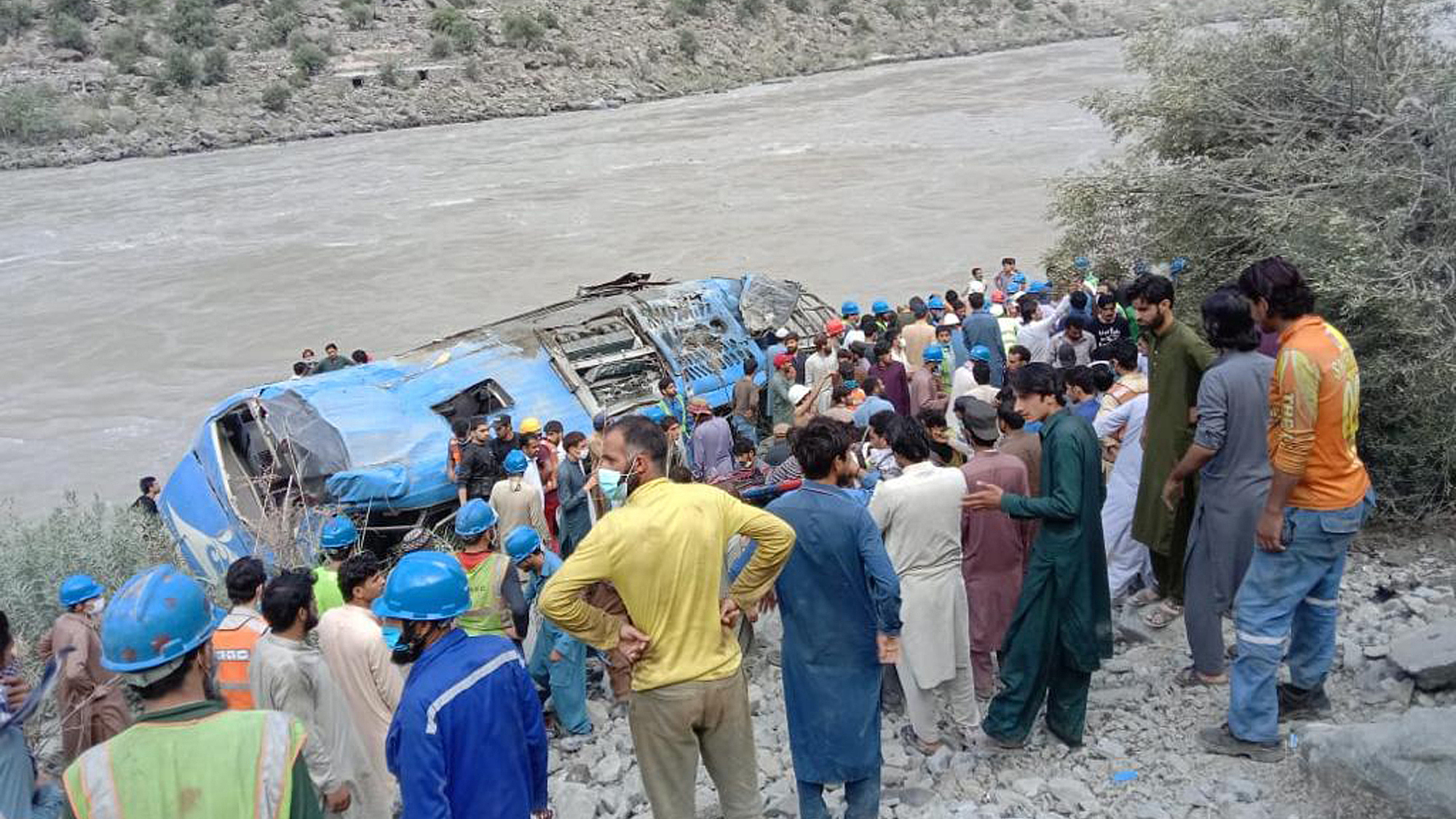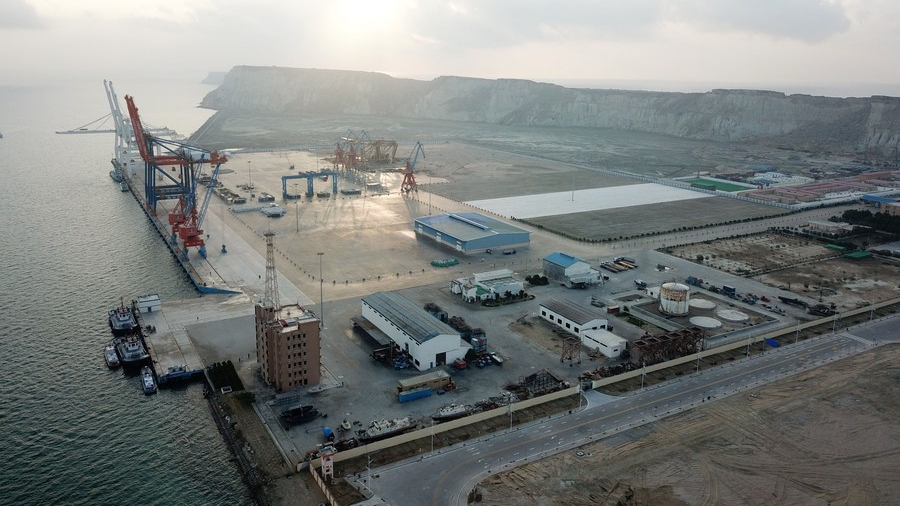
Pakistani people at the site where a bus fell into a ravine following a bomb attack, in Kohistan district, Pakistan, July 14, 2021. /CFP
Pakistani people at the site where a bus fell into a ravine following a bomb attack, in Kohistan district, Pakistan, July 14, 2021. /CFP
Editor's note: Hamzah Rifaat Hussain is a former visiting fellow at the Stimson Center in Washington and serves as assistant researcher at the Islamabad Policy Research Institute (IPRI) in Pakistan. The article reflects the author's opinions and not necessarily those of CGTN.
As a testament to the strength of China-Pakistan ties, the barbaric terrorist attack on a bus transporting workers resulting in nine Chinese fatalities in Pakistan's northwest Khyber Pakhtunkhwa province, prompted Beijing and Islamabad to underline the importance of completely annihilating terrorism based on the strength of their multipronged, strategic partnership.
With an investigation into the heinous incident underway, the message is unequivocal and clear to both anti-government and anti-China forces operating in Pakistan and beyond. They will not be spared.
The senseless and egregious killing of innocent civilians highlights the spillover effect of the absence of a sustainable political solution to the Afghan conflict.
The timing of the attack is significant as it coincides with a planned but postponed Joint Coordination Committee meeting under the China Pakistan Economic Corridor. The project aims to expedite infrastructure development and promotion of regional connectivity as part of the Long Term Plan of 2017-30.
As allies, both Islamabad and Beijing were also scheduled to discuss issues faced by Chinese companies working on various ventures such as special economic zones and energy corridors. This barbaric attack was clearly aimed at sabotaging progress between the two states through disruption.

A view of Gwadar Port in southwest Pakistan's Gwadar, January 29, 2018. /Xinhua
A view of Gwadar Port in southwest Pakistan's Gwadar, January 29, 2018. /Xinhua
As per Professor Dr Jeffrey Bale of the Monterey Institute of International Studies, an act of terrorism is defined as an operational technique with the objective of delivering a message to a wider target audience. In this case, the wider target audiences are the respective governments and the people of China and Pakistan. The terrorists have a putrid strategy of killing innocent civilians being employed to create fissures in a relationship otherwise defined by high levels of trust and convergence.
Note that at the societal level anti-China sentiment in Pakistan is non-existent with both countries sharing joint visions for achieving peace in Afghanistan, combatting COVID-19, resolving all outstanding disputes from the Middle East to Africa and promoting regional connectivity to better address poverty, destitution and economic slowdowns.
In light of this, the latest terror attack perpetrators relayed a message to the Pakistani government that its all-weather friendship with China is unacceptable based on a terrorist ideology inundated with perverted regional outlooks on peace in Afghanistan, resolution of conflicts and regional connectivity projects. Such actions must be dealt with befittingly. None of this is or will be acceptable.
The telephone conversation between Chinese Premier Li Keqiang and his counterpart Imran Khan on July 16 was an unequivocal affirmation that the incident at Khyber Pakhtunkhwa province was an act of terrorism with a resolve expressed by Islamabad to hold the culprits responsible.
Contrary to the aspirations of terrorist groups, such attacks will spur further assistance from Beijing to Islamabad. There exists an understanding in Pakistan that Chinese casualties will not be tolerated prompting the interior ministry to relay assurances that this all-weather friendship will never be affected by such cowardly acts. The earlier blast at the Serena Hotel in Quetta, when the Chinese Ambassador Nong Rong was visiting in April this year, and Islamabad's subsequent response is a testament to this very fact.
Nevertheless the existence of transnational and regional forces having a stake in thwarting Chinese investments particularly in conflict-prone zones such as Balochistan is problematic. Much of this stems from historical U.S. legacies of intervention in a region without understanding local dynamics, which has prompted the mushrooming of nefarious elements adamant in disrupting peace. Rest assured they will be met with a befitting response.
(If you want to contribute and have specific expertise, please contact us at opinions@cgtn.com.)

